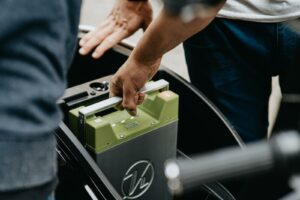Contents
If you plan to open up your very own bar, restaurant or pub in New Zealand, it’s crucial to consider whether you will be serving alcoholic beverages to your patrons. If the answer is yes, you’ll need to familiarise yourself with the process of obtaining a Liquor Licence in New Zealand.
In New Zealand, a Liquor Licence is required to regulate the sale and supply of alcohol, ensuring that you comply with the Sale and Supply of Alcohol Act 2012. It’s essential to apply for the correct type of liquor licence that aligns with your business operations.
Types Of Liquor Licences
New Zealand offers several types of liquor licences, and it’s important to choose the one that best fits your business model. Some of the liquor licence categories include:
- On-licence (for consumption on the premises)
- Off-licence (for retail sale to be consumed elsewhere)
- Club licence
- Special licence (for events)
On-Licence for Bars and Restaurants
If you’ve opened a bar or restaurant, you’ll likely need an On-licence. This allows you to serve alcohol for consumption on your premises. There are specific criteria you must meet, such as providing food, non-alcoholic beverages, and seating.
Some features of an On-licence may include:
- Allowing minors on the premises under certain conditions
- Providing a range of food and drink options
- Complying with local council regulations
If your establishment is smaller, you might consider a licence suitable for venues with a lower capacity. For larger venues, you’ll need to ensure your licence covers the maximum number of patrons you expect.
You can also apply for different types of licences or endorsements depending on your business needs, such as catering or BYO endorsements.
To determine the best licence for your business, you can consult with the New Zealand Alcohol Regulatory and Licensing Authority.
Do Liquor Licence Laws Differ Across New Zealand?
While the Sale and Supply of Alcohol Act 2012 provides the framework for alcohol licensing in New Zealand, local councils may have additional policies or requirements. It’s important to check with your local council to understand any specific regulations that may apply to your area.
Are There Any Exceptions To A Liquor Licence?
In certain circumstances, you may not need a liquor licence. For instance, if your business is:
- A bed and breakfast providing alcohol only to guests
- A private function where alcohol is not sold
- A club providing alcohol only to its members and guests
For BYO restaurants, you may not need a full liquor licence but must adhere to specific conditions and may require a BYO endorsement from your local council.
Who Can Help Me Apply For A Liquor Licence?
Applying for a liquor licence in New Zealand involves a detailed process, and it’s important to provide accurate information about your business. Selecting the right type of licence is crucial, and you may be eligible for certain exemptions or conditions.
Seeking legal assistance can be beneficial. At Sprintlaw, our Liquor Licence package includes:
- Guidance on the type of licence you need
- Assistance with the application process
- Phone consultations with a Sprintlaw lawyer who can advise you on the legal issues that apply to your business and documents
What Now?
Ensuring compliance with New Zealand’s alcohol laws is paramount for any business. If you would like a consultation on your options, you can reach us at 0800 002 184 or [email protected] for a free, no-obligations chat.
Get in touch now!
We'll get back to you within 1 business day.











